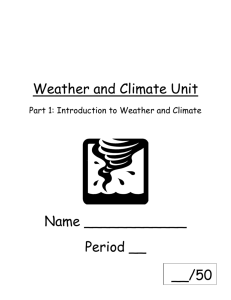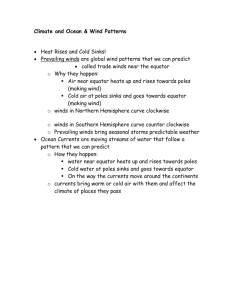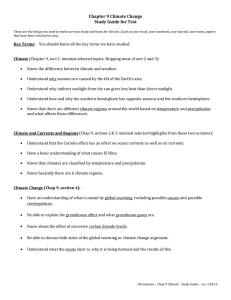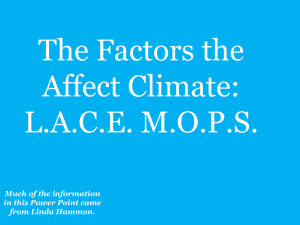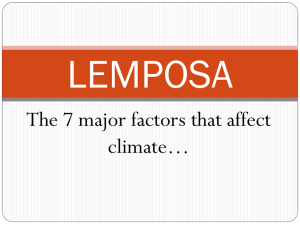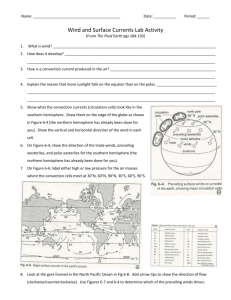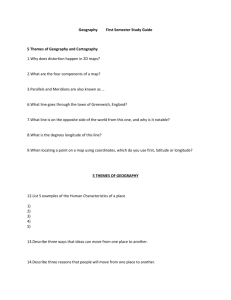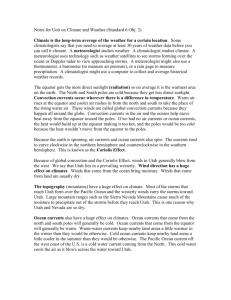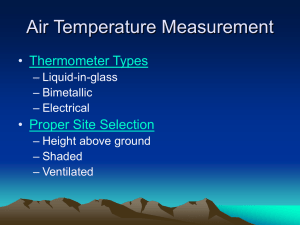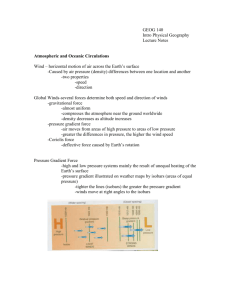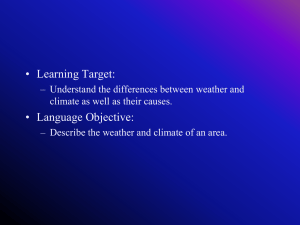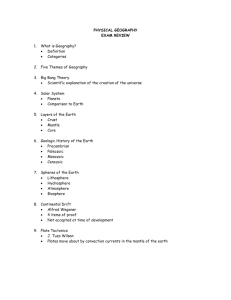Factors That Affect Climate
advertisement
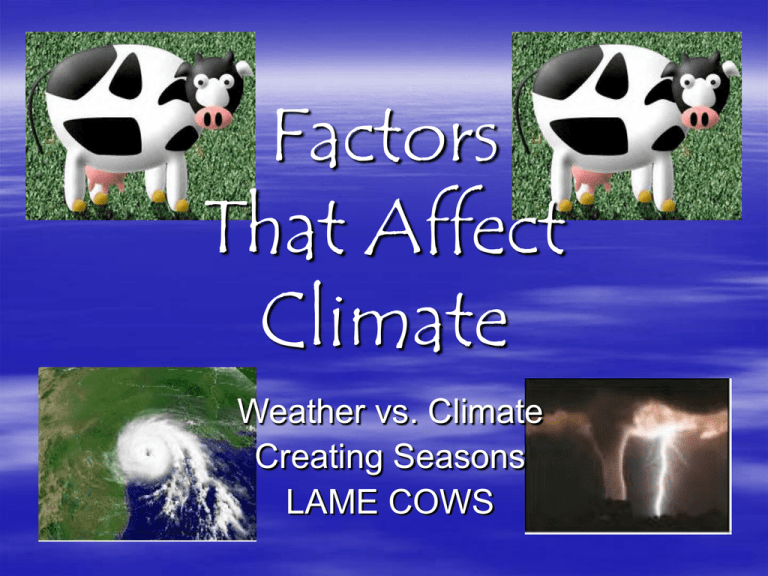
Factors That Affect Climate Weather vs. Climate Creating Seasons LAME COWS Weather vs. Climate Weather – condition of the atmosphere in one place during a short period of time. Climate – weather patterns typical for an area over a long period of time. Creating Seasons Revolution – Orbit around the sun Rotation – Earth rotates on its axis - 24 hours – from west to east. Axial Tilt – Earth is tilted at 23 ½ ° differing the amount of sunlight throughout the year. Creating Seasons Equinox – March 21 and September 23, suns rays on the equator. Spring and Fall Solstice – June 21, north hemisphere receives the most sun, Dec 22 Southern hemisphere receives most sun. Summer and Winter. Creating Seasons Eight Factors That Affect Climate Continental Latitude Location Air Pressure O cean Currents Mountain Barriers Elevation Wind Currents Storms Latitude Major change to climate Change as you move North to South Equator = direct rays = hot Poles = indirect rays = cold Air Pressure Caused by unequal distribution of earths heat. LP = warm, moist air rises → forms clouds → storms. HP = cold dry air → sinks → stable and clear. Mountain Barriers a.k.a. - Orographic Precipitation a.k.a. – Rain Shadow Effect Windward side – Warm, moist air → up windward side → cool moist air drops precipitation Leeward side – Warm dry air → down leeward side → little to no rain. Elevation How far above sea level you are. Every 1,000 feet temperature changes 3.5°F. Continental Location Water heats and cools more slowly than land. Coastline areas have stable temperature. Interiors of continent have extreme temperature changes. Ocean Currents Warm-water currents equator to the poles. Cold water currents - poles to the equator. Coriolis effect – The currents circular patterns are opposite of one another due to the Earth’s rotation. – Northern Hemisphere – clockwise – Southern Hemisphere – counter clockwise. Wind Currents Air in high pressure rushes into areas of low pressure – this causes wind. Helps to distribute earth’s heat. Coriolis effect Storms Clashes between warm and cold air masses – Hurricanes – tropical storms moving heat from tropics. – Tornadoes – powerful funnel shaped spiraling air. Homework Read page 58 in your textbook, section titled “The Greenhouse Effect”. (total of 6 paragraphs) – Answer the following questions, Why is the earth’s atmosphere referred to as being like a greenhouse? What human activities have caused there to be high levels of CO2 in the atmosphere? Analyze the diagram on page 70. – Answer questions 1-4 in complete sentences.
